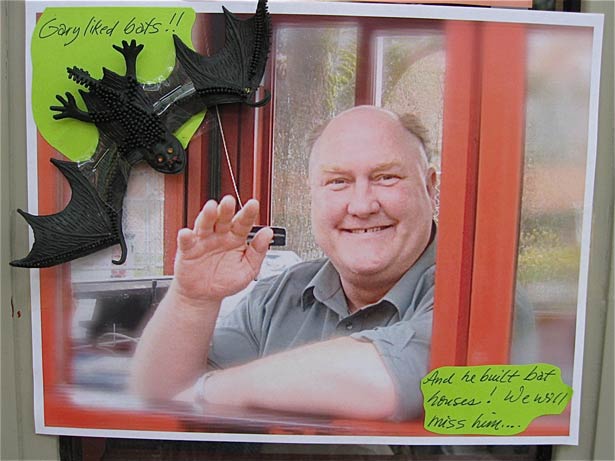
• The Eugene Celebration showed off a revitalized downtown this year, and we heard lots of positive comments from people walking along Broadway who hadn’t been to our city center for a while. In between dancing, snacking and socializing, we also heard some grumbles about the LCC Downtown Center’s interior courtyard walled off from easy public access (“It could have been a mini-park,” said one observer) and we heard lots of complaints about the nearby concrete parking garage wall on the Capstone project along Olive. Which city planner signed off on that eyesore? Is Capstone planning a “living wall” covered with hanging plants? Unlikely. In contrast, we marveled at some impressive projects at the American Institute of Architects exhibit during the celebration. Local architects and students are showing us how to make our city more beautiful, functional and resource-efficient — without six-story concrete walls.

• Lane County’s been circulating photos of people pooping downtown, and while the county says it isn’t linking the defecation to the SLEEPS camp at the Wayne Morse Free Speech Plaza, the implication being made is clear. Poop is gross and makes for shock value, but let’s face it: The real issue here is that people need places to sleep and to potty. We need more places like Opportunity Village and more open bathrooms downtown. Where did they think all the people camping in the West Eugene Wetlands were going to go? On another note, we’d like to gently remind the county that, homeless issue aside, Lane County needs to get going cleaning up its own shit.
• Sources at Kaleidoscope Music Festival indicate that the first-year clusterfuck/awesome time had crowd estimates ranging from 7,500 on Friday to 12,000 on Saturday, and back down to 8,500 on the rainy Sunday. We guess Nas got the attention he deserved. “Detailed figures” on fiscal totals for the festival are “not available at this time,” but sources say the festival did not break even. Maybe next year they’ll put more money into infrastructure and less into big names. Hundreds of comments are on the KMF Facebook page, including complaints about the festival cutting ticket prices in half just before the event. Might make it tough to sell early tickets next year.
That being said, the first year for any event of this size is bound to have some glitches. And it should be noted that the county and the R-G have been much more vocal in their criticism of the noise levels at Kaleidoscope Music Festival than the gravel mining noise disturbances at Parvin Butte. Commissioner Faye Stewart told the R-G that he had “grave concerns” about Kaleidoscope. We don’t know about the county, but here at EW we have graver concerns over heavy mining than heavy bass.

• Gary Davis of Cottage Grove died unexpectedly Aug. 19 at age 61. The witty, friendly guy manned the little parking kiosk near the EMU on the UO campus. We do not yet know the details of his passing or if there will be a service. We do know he was a big union supporter, an avid fly-fisher, a great storyteller and an expert on bats and bat houses. He will be missed by many.
• We like the “Media and Democracy” 2013-15 theme of inquiry of the Wayne Morse Center for Law and Politics at the UO. Terry Fisher, the anchor scholar, will give the first public lecture at 12:30 pm Thursday, Sept. 5, at 175 Knight Law Center. He’s director of the Berkman Center for Internet and Society and professor of intellectual property law at Harvard Law School. Fisher will talk about recent cases he has worked on, including the Obama “Hope” poster case and the Bikram yoga case in which he successfully argued that yoga sequences cannot be copyrighted. Sounds like a stellar opening for another provocative Morse Center theme.
• Yet another pot bust, this time in the Willamette National Forest outside of Westfir. How much did prohibition cost taxpayers this time? Approximately 40 law enforcement officials teamed up for the raid, which required a federally provided helicopter and ground personnel to remove 3,000 plants worth about $20 million. Meanwhile, it’s easy to buy marijuana on the street. Think about the potential tax revenue that could be tapped by regulating this black market, not to mention diminishing the environmental footprint that pesticides cause in many of these illegal grows. It’s time to seriously rethink prohibition.
• Bombing Syria: What could possibly go wrong?